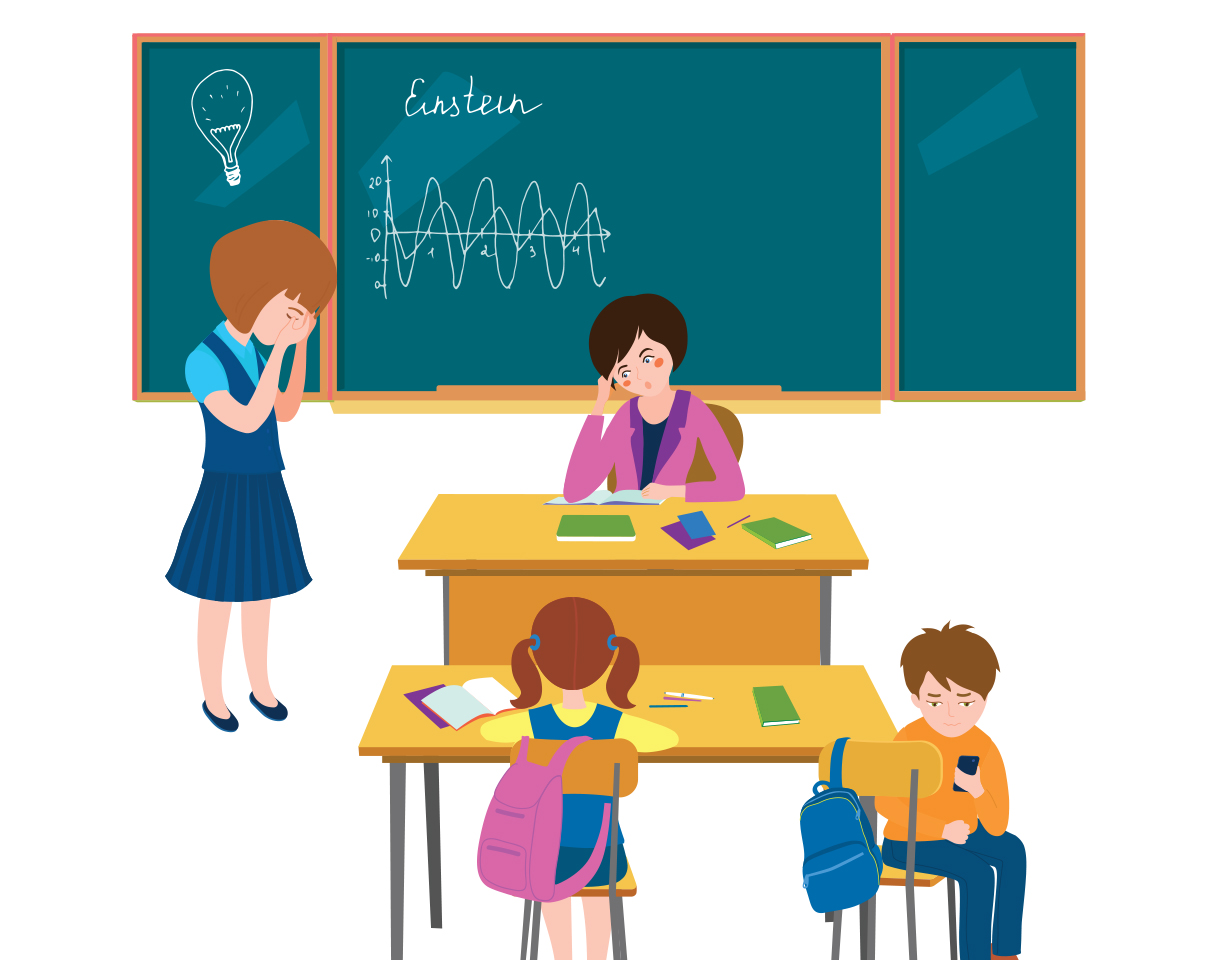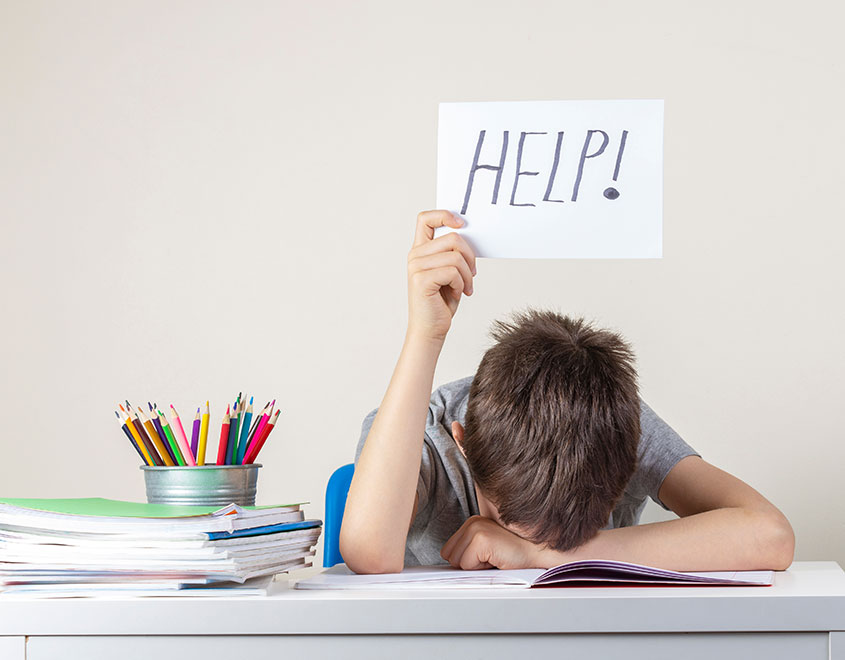
Disruptive student behaviour is the most challenging aspect of teaching and causes anxiety in teachers. If not dealt with timely, disruptive behaviour can devastate a classroom causing students to lose focus and learn nothing.
Studies show that teachers have left their jobs due to disruptive student behaviour in the classroom. In other words, most teachers lack strategies and methods to deal with disruptive behaviour in school. The teaching profession has become more complex which is why it is absolutely essential to discuss the symptoms and causes of disruptive behaviour disorder and quickly fix it.
What is disruptive student behaviour?
Disruptive behaviour disorder (DBD) can have a significant impact on a child’s daily life. These children exhibit patterns of uncooperative and defiant behaviour. Hostility and indifference are their responses to authority figures. Their behaviours have an effect on those around them, including teachers, peers, and family members.
Symptoms of disruptive student behaviour
There are many ways children can express disruptive behaviours. When dealing with disruptive behaviour, parents and teachers should look out for these symptoms-
- Being uncooperative
- Arguing about small and unimportant things
- Refusal to follow rules
- Deliberately annoying others and being easily irritated by other people
- Blaming others for one’s mistakes/misbehaviour
- Behaving in angry, resentful, vindictive and spiteful ways
- Being disrespectful to others
- Aggressive towards animals and other people
- Intimidating and bullying others
- Deliberately destroying properties
- Showing no remorse about stealing and lying
- Playing truant frequently
- Running away from home
Also Read: 6 ways to keep students and teachers motivated and happy as they get back to schools
What causes disruptive behaviour disorder?
Disruptive student behaviour is the result of multiple factors working together:
Heredity – Children with disruptive behaviour disorder often get it from parents who suffer from mental health disorders, including:
- Substance abuse
- Attention-deficit/hyperactivity disorder
- Mood disorder
- Schizophrenia
- Antisocial personality disorder
However, affected children also come from healthy families that function well.
Environment – There is an increasing risk of disruptive behaviour disorder among children who:
- Had their mothers reject them as infants
- Had Poor foster care
- Received inadequate parental or adult supervision
- Received overly harsh, inconsistent, or otherwise ineffective discipline
- Have been emotionally, physically, or sexually abused or neglected
In addition, children who have faced poverty and witnessed domestic violence or substance abuse are more likely to develop the disorder.
Physical – There is a greater risk of developing disruptive behaviour disorder among children who:
- Had a low birth weight
- Have suffered neurological damage
Psychological – Children who have suffered from attention-deficit hyperactivity disorder (ADHD) are at a higher risk of developing disruptive behaviour disorder. Approximately one-third to one-half of all children with ADHD may have the coexisting oppositional defiant disorder.
How to deal with disruptive students in class
Every person who is new to the teaching profession should be aware of the behavioural policy of the school and instructions to be followed in the event of bad behaviours.
According to Unison, there are 10 essential tips for dealing with disruptive behaviour. They are:
- Speaking to the students in a polite, non-aggressive and neutral tone and letting them know what you expect them to do.
- Keeping your tone calm and neutral and repeating the instructions if they fail to respond.
- Reminding the students that non-compliance with your instructions could have long-term consequences.
- If the student persists and refuses to comply, imposing sanctions such as calling the child’s home and reporting the incident to the Headmaster, who has more authority, would be beneficial. Ignoring them will only exacerbate the situation. Instead, send the message that impunity and indiscipline will result in dire consequences.
- Talking to the child privately. Most students respond to the one-to-one conversation once they are removed from their audience.
- Not losing your temper and shouting/screaming in class. If you do this, you will lose control of the class.
- Remembering the names of your students. It is polite to take the time to remember their names. Calling someone by their name is far more personal and practical while maintaining order or explaining things.
- Following up with any instructed consequences if there has been an incident. It sends the wrong message if a student challenges your authority and enjoys impunity.
- Handling disruptive behaviour in the classroom with care. It is critical for everyone’s well-being to act quickly to report issues and impose sanctions for challenging behaviour. Your Headmaster and other faculty members should back you up.
You can also watch a recorded session of Varthana, where our guest expert has answered many lingering questions about disruptive student behaviour.
Wrap Up
Teaching is the most revered and important profession. Teachers have always played an important role in shaping society. Many of us remember certain teachers with affection and gratitude because they have had a positive impact on our lives. However, the path of educators and parents is not without challenges. Dealing with disruptive behaviour can be taxing for freshers in the education field.
There are no simple solutions to deal with disruptive student behaviour. Teachers should be able to perform their duties effectively and provide education to children; if necessary, they will be able to control difficult students by being firm, consistent, kind and calm.
FAQs
1. How do you deal with a disruptive child at school?
When handling a child in school, there are ways to address the situation;
- Maintain your composure and act professionally without taking it personally.
- Directly address the behaviour.
- Set expectations by ensuring that classroom rules and expectations are well-defined and understood by all students.
- Use reinforcement by praising and acknowledging behaviour to promote it.
- Redirect the child’s focus to the task or activity if they become disruptive.
- Implement consequences by following through with outcomes for disruptive behaviour.
- If necessary, engage in communication by conversing with the child to understand the causes of disruption.
- Collaborate with parents and school counsellors to create a support plan for the child.
2. What is disruptive behaviour in school?
Disruptive behaviour can take many forms, but it generally interferes with the learning environment for the disruptive child and other classmates. Here are some examples:
- Calling out, talking excessively, or yelling in class
- Not following instructions or classroom rules
- Fidgeting, getting out of seat, or moving around the room unnecessarily
- Arguing with classmates or the teacher
- Physical aggression towards others
3. How can a teacher solve misbehaviour problems in the classroom?
There are several strategies teachers can use to address misbehaviour:
- Proactive approach: Create a positive and engaging classroom environment with clear expectations.
- Positive reinforcement: Catch students being good and acknowledge positive behaviour.
- De-escalation techniques: Use calm communication and redirection to avoid escalating the situation.
- Logical consequences: Implement a consistent system of consequences for misbehaviour.
- Individualized approach: Identify the root cause of the behaviour and develop strategies to address it.
- Collaboration: Work with parents, counsellors, and administrators to develop a support plan for students with chronic misbehaviour.
4. How might a teacher address issues of misbehaviour in the classroom?
There are methods educators can employ to manage misbehaviour:
- Taking a proactive stance: Establish a positive, interactive classroom setting with clearly defined expectations.
- Utilizing reinforcement: Recognize and praise students for displaying behaviour.
- Employing de-escalation tactics: Communicate and redirect to prevent situations from worsening.
- Implementing consequences: Enforce a system of repercussions for misbehaving actions.
- Tailoring interventions: Identify the causes of behaviour. Devise strategies to tackle them.
- Promoting collaboration: Engage with parents, counsellors and school officials to create a plan for students exhibiting misbehaviour.
5. How will you handle a child with behavioural problems in the classroom?
When dealing with a child exhibiting issues in the classroom, here’s how a teacher could approach the situation:
- Establish a connection: Take the time to get to know the child and uncover the underlying reasons behind their behaviour.
- Encourage behaviour: Focus on recognizing and praising conduct to motivate positive changes.
- Set expectations: Provide routines and guidelines for the child to follow.
- Allow choices: Grant the child autonomy by offering options within set boundaries.
- Maintain communication: Keep parents informed and collaborate on maintaining strategies at home and school.
- Seek assistance: Consult with school counsellors or specialists for support and guidance.
Related Blogs
- Behaviour management in schools – What has a 2-year gap done to the brains of teenagers?
- Dealing with disruptive school children and stabilizing their behaviour
- How can schools enhance parents’ engagement better post-Covid?
- Building a growth mindset for teachers: Amplify their work and reap the benefits
- How to help new-age students learn and retain information better?





Social